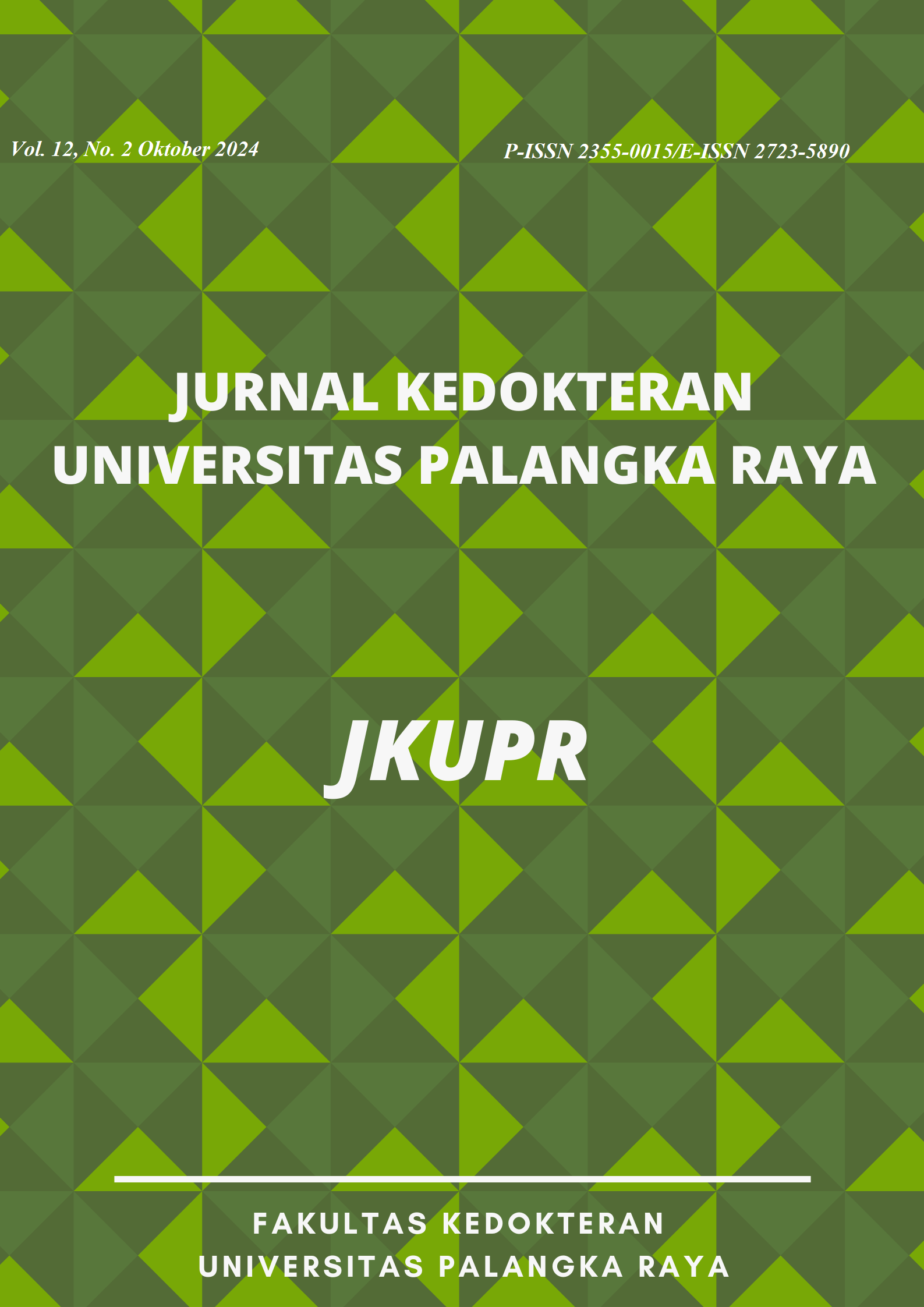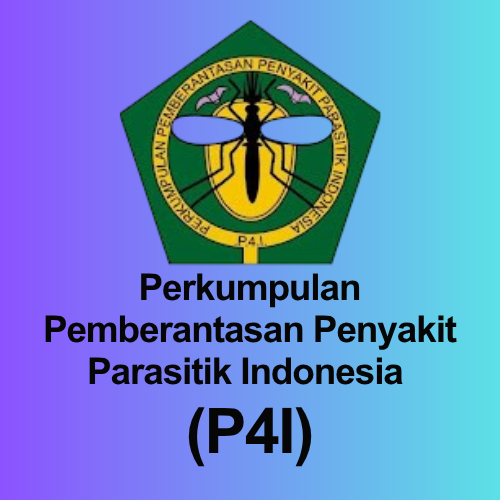Isolasi Staphylococcus aureus dari Swab Tangan Penjamah Makanan di Kantin Universitas Mataram
DOI:
https://doi.org/10.37304/jkupr.v12i2.15313Kata Kunci:
kantin, penjamah makanan, Staphylococcus aureus, tanganAbstrak
One of the main qualities of food is seen from the biological safety aspect, such as being free from Pathogenic microorganisms. Staphylococcus aureus is a pathogenic bacterium that can contaminate food ingredients come from the skin of food handlers. S. aureus produces enterotoxins that have a poisoning in consumers.The preliminary observationstated that there were still many food handlers in the Mataram University canteen who did not pay attention to hand hygiene and personal sanitation. This study aims to determine the bacterial contamination of S. aureus swabbed from the hands of food handlers in the Mataram University cafetaria. The method was used in this research is descriptive observational. The research consisted of two stages, namely isolation and biochemical identification. The isolation stage resulted 10 culturable bacterial isolates. All bacteria were able to ferment mannitol on Mannitol Salt Then, the biochemical test identification resulted that all isolates had a positive catalase test, a positive slide coagulase test, Gram-positive, and staphylococci cell. The TSIA test resulted A/A or (acid)/(acid) which indicated that all isolates were able to use diverse carbon sources from sucrose, lactose, glucose. Moreover, other test as sulfur, indole and motility tests were negative. Therefore, all isolates in this study are classified as S. aureus. This research is also a promotive and preventive effort for the campus in implementing hygiene and sanitation for food handlers in the cafetaria.
Unduhan
Referensi
Sugiyono LP. Gambaran Pengetahuan, Sikap, Praktek Serta Identifikasi Escherichia coli dan Staphylococcus aureus pada Penjamah dan Makanan di PT PSA. J Poltekkes Semarang. 2010; DOI: https://doi.org/10.31983/jrg.v2i2.3257
Vatansever L, Sezer Ç, Bilge N. Carriage rate and methicillin resistance of Staphylococcus aureus in food handlers in Kars City, Turkey. Springerplus. 2016;5(1). doi: 10.1186/s40064-016-2278-2
Rahmah R, Kamal H. Hygiene dan Sanitasi Penjamah Makanan Pada Ruangan Pengolahan RSUD Datu Beru Aceh Tengah. NutrJ Pangan,Gizi,Kesehatan. 2022;3(2):37–43.
Labović SB, Joksimović I, Galić I, Knežević M, Mimović M. Food Safety Behaviours among Food Handlers in Different Food Service Establishments in Montenegro. Int J Environ Res Public Health. 2023;20(2). DOI:10.3390/ijerph20020997
Zenbaba D, Sahiledengle B, Nugusu F, Beressa G, Desta F, Atlaw D, et al. Food hygiene practices and determinants among food handlers in Ethiopia: a systematic review and meta-analysis. Trop Med Health [Internet]. 2022;50 (1). Available from: https://doi.org/10.1186/s41182-022-00423-6
Bencardino D, Amagliani G, Brandi G. Carriage of Staphylococcus aureus among food handlers: An ongoing challenge in public health. Food Control [Internet]. 2021;130(June):108362. Available from: https://doi.org/10.1016/j.foodcont.2021.108362
Bobrovskyy M, Chen X, Missiakas D. The Type 7b Secretion System of S. aureus and Its Role in Colonization and Systemic Infection. Infect Immun. 2023;91(5):1–14.
Otto M. Staphylococcus aureus toxins. Curr Opin Microbiol [Internet]. 2014;17(1):32–7. Available from: http://dx.doi.org/10.1016/j.mib.2013.11.004
Purnama Dewi NLP, Suyasa ING. Gambaran Sanitasi Kantin Di Sekolah Menengah Pertama Negeri 2 Kuta Selatan Kabupaten Badung Tahun 2018. J Kesehat Lingkung. 2020;10(1):1–8.
Mawarsari S, Purwidiani N, Afifah CAN, Kharnolis M. Analisis Kondisi Sanitasi dan Higiene di Kantin SMA Negeri 2 Pare Kediri. J Tata Boga. 2020;9(2):822–8.
Kurniati PS, Heriyani F, Budiarti LY. Gambaran Jenis Bakteri Pada Tangan Siswa Sekolah Dasar Di Sekitar Bantaran Sungai Lulut Banjarmasin. Homeostatis. 2019;2(1):99–106. DOI: https://doi.org/10.20527/ht.v2i1.434
Beyene G, Mamo G, Kassa T, Tasew G, Mereta ST. Nasal and Hand Carriage Rate of Staphylococcus aureus among Food Handlers Working in Jimma Town, Southwest Ethiopia. Ethiop J Health Sci. 2019;29(5):605–12. doi: 10.4314/ejhs.v29i5.11
Nilasari V, Setiadi Y, Subandriani DN, Larasati MD, Rahayuni A. Hubungan Antara Pendidikan, Pengetahuan Dan Praktik Hygiene Sanitasi Penjamah Makanan Terhadap Keberadaan Bakteri Staphylococcus aureus Pada Hidangan Hewani Di Salah Satu Catering Kota Semarang. J Ris Gizi. 2019;7(1):34–40. DOI:10.31983/JRG.V7I1.4362
Yanto RB, Satriawan NE, Suryani A. Identifikasi Dan Uji Resistensi Staphylococcus aureus Terhadap Antibiotik (Chloramphenicol Dan Cefotaxime Sodium) Dari Pus Infeksi Piogenik Di Puskesmas Proppo. J Kim Ris. 2021;6(2):154. https://doi.org/10.20473/jkr.v6i2.30694
Abdilah F, Kurniawan K. Morphological Characteristics of Air Bacteria in Mannitol Salt Agar Medium. Borneo J Med Lab Technol. 2022;5(1):353–9.
Nuraini C, Saida S, Suryanti S, Nontji M. Isolasi Dan Identifikasi Bakteri Rhizosfer Tanaman Jagung Pada Fase Vegetatif Dan Generatif. AGrotekMAS J Indones J Ilmu Peranian. 2020;1(1):24–30.
Ren Q, Liao G, Wu Z, Lv J, Chen W. Prevalence and characterization of Staphylococcus aureus isolates from subclinical bovine mastitis in southern Xinjiang, China. J Dairy Sci [Internet]. 2020;103(4):3368–80. Available from: http://dx.doi.org/10.3168/jds.2019-17420
Lehman D. Triple Sugar Iron Test Protocols. Am Soc Microbiol [Internet]. 2005;(September 2005):2–3. Available from: https://legacy.bd.com/europe/regulatory/Assets/Ifu/Hb/Ce/Pa/Es-Pa-254458.Pdf
Yanti N, Yana D, Dharma B, Nugroho Ra. Karakterisasi Dan Identifikasi Bakteri Dari Tamba Daging Babi (Sus Sp.) Hasil Fermentasi Spontan I N F O A R T I K E L. Bioprospek [Internet]. 2016;11(2):53–60. Available from: https://fmipa.unmul.ac.id/jurnal/index/Bioprospek
Pollitt EJG, Crusz SA, Diggle SP. Staphylococcus aureus forms spreading dendrites that have characteristics of active motility. Sci Rep. 2015;5(2):1–12.
Kaito C, Sekimizu K. Colony spreading in Staphylococcus aureus. J Bacteriol. 2007;189(6):2553–7. doi: 10.1128/JB.01635-06
Lin J, Xu P, Peng Y, Lin D, Ou Q, Zhang T, et al. Prevalence and characteristics of Staphylococcus aureus and methicillin-resistant Staphylococcus aureus nasal colonization among a community-based diabetes population in Foshan, China. J Diabetes Investig. 2017;8(3):383–91. doi: 10.1186/s12879-021-06516-7
Mustafa HSI. Staphylococcus aureus; Can Produce Catalase Enzyme When Adding to Human WBCs as a Source; Productions in Human Plasma or Serum in the Laboratory. Open J Med Microbiol. 2014;04(04):249–51. DOI:10.4236/OJMM.2014.44028
Waskita PT, Balia RL, Joni IM, Setiyadi W. Clinical Symptom Analysis of Characteristic Bacteria Causing Subclinical Mastitis in Dairy Cow at Pengalengan, Bandung Regency. J Soc Res. 2024;3(5):1124–34.
Unduhan
Diterbitkan
Cara Mengutip
Terbitan
Bagian
Lisensi
Hak Cipta (c) 2024 Jurnal Kedokteran Universitas Palangka Raya

Artikel ini berlisensiCreative Commons Attribution-NonCommercial-ShareAlike 4.0 International License.




















